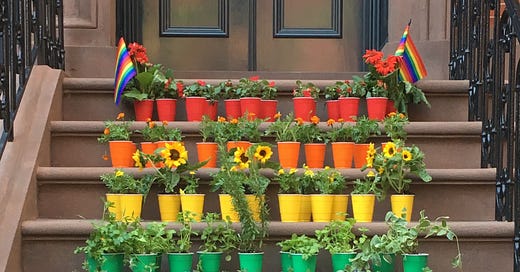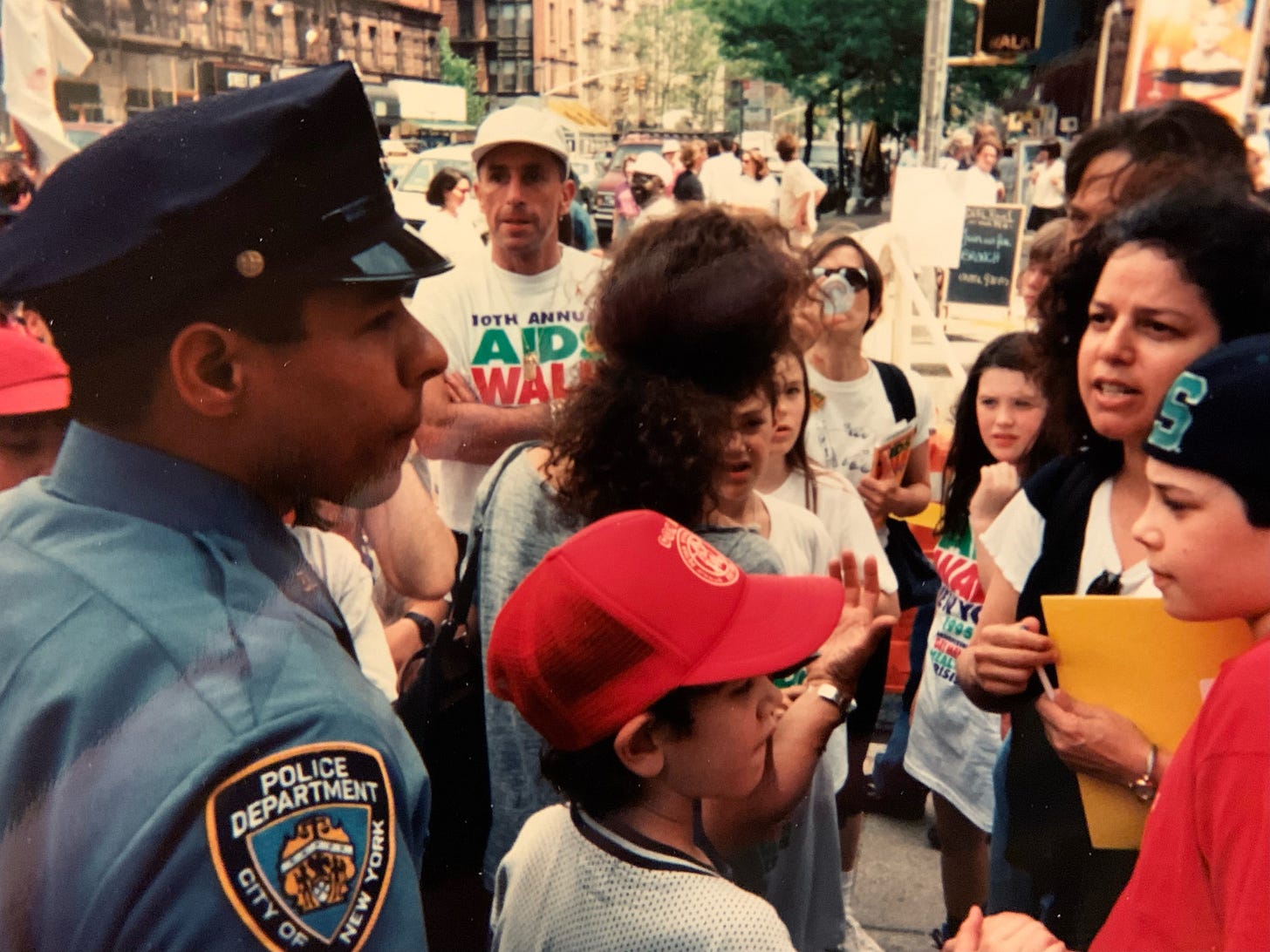I knew it was okay to be gay before I knew I was gay myself. That was thanks in part to loving and enlightened parents, and thanks mostly to growing up in New York.
As a kid living on lower Fifth Avenue, I had a front-row seat to the Pride Parade, watching from a perch atop my father’s shoulders.
Our beloved elementary school art teacher, John, died of AIDS; my mother started the school’s AIDS Walk team, leading it to be one of the top 20 fundraisers citywide.
Indeed, I grew up hearing stories about my great-uncle wearing drag to Village bars before the Stonewall Riots—long before I was old enough to buy a drink at the Stonewall Inn myself.
That’s not to say it was easy to be a queer kid in the 1990s, before Lawrence v. Texas, let alone Obergefell v. Hodges. But New York was the place where everyone could love who they wanted to love and be who they wanted to be.
I was lucky to grow up in New York—a place I could be proud. But now I’m not so proud of New York.
Over the course of my life, the neighborhoods of the Stonewall Inn and the Pride Parade have been proclaiming their openness to everyone who wants to live authentically. At the same time, we’ve been closing our doors.
We have severely slowed down the rate of new home construction: New York now has a record-low apartment vacancy rate and record-high rents. We put “Love is Love” signs in the windows of our co-ops and then refuse to allow new homes be built next door.
Rising costs are pushing out all but the wealthiest, forcing families to move to less tolerant states because they are less expensive. (Those states then get more representation in Congress and the Electoral College at the expense of New York’s power.)
I’m fighting for abundance because I want other kids to have the opportunity I did: to live authentically by living in this city. But that opportunity doesn’t exist without ending the scarcity and stagnation that have defined New York for decades.
This pride month, I celebrate the queer elected officials—like council members Erik Bottcher, Crystal Hudson, and Chi Ossé—who recognize that progressive commitments to mutual respect and freedom must go hand in hand with making room for those who are currently disrespected and unfree.
Ossé and Hudson grew up here; Bottcher came seeking acceptance after struggling with depression in his youth. All three now speak out against the housing scarcity that helps no one but landlords, and they push for more homes in their districts and citywide.
To all New York politicians waving rainbow flags this month: we cannot pass laws to enshrine the rights of the marginalized—be they LGBTQ+ Americans, women in need of abortion care, or refugees from foreign wars or climate change—and then deny them entry.
NIMBYism is just another kind of wall.






